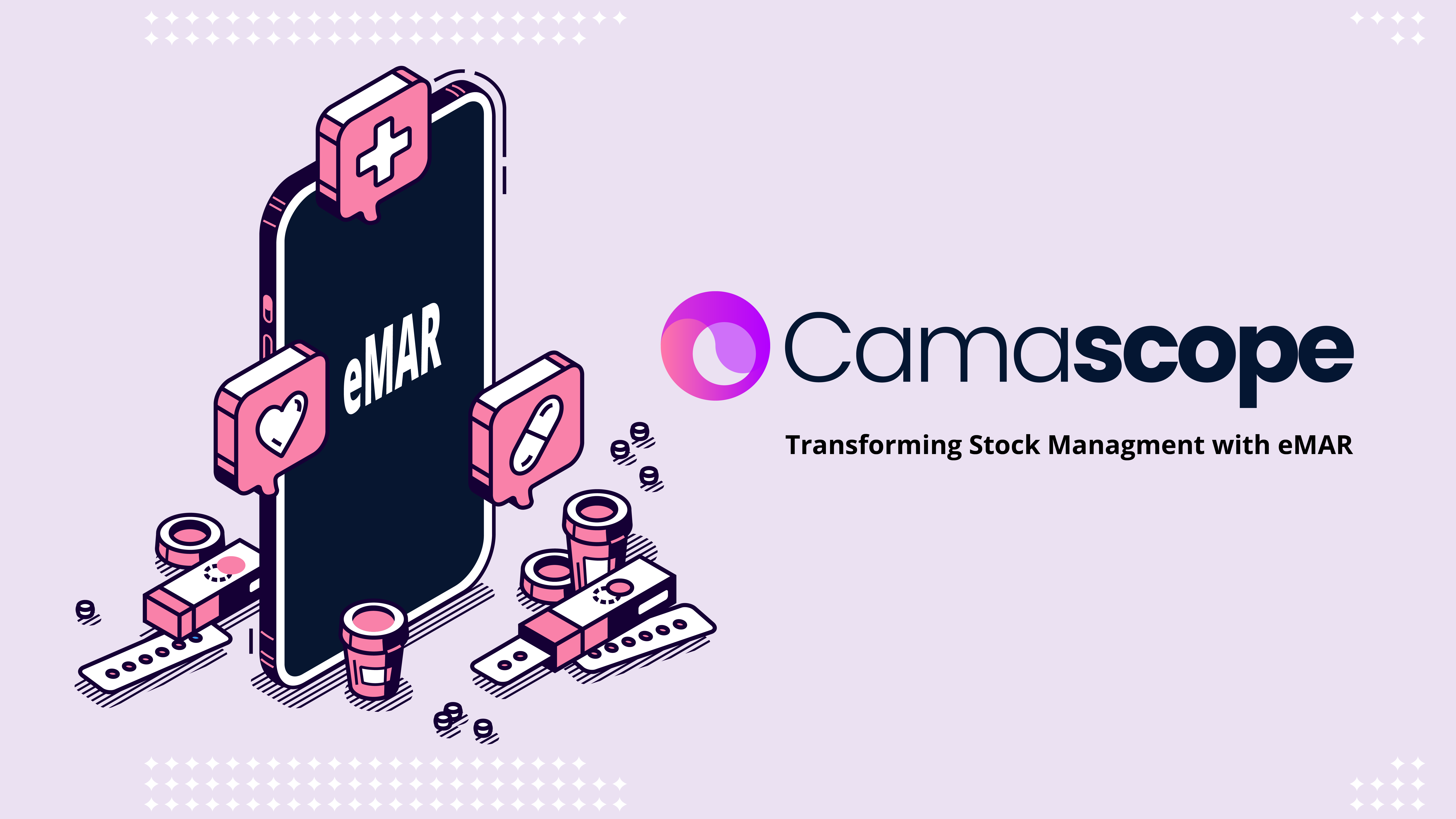Medicine management is a complex task that directly impacts residents, carers and managers.
The Challenges of Medicine Management in a Care Home
We know that medicine management frequently raises challenges for care homes. The CQC flags improving the safety of medicine management as a national priority and has committed to ensuring that healthcare providers have robust procedures in place to reduce risk.
Medicine management is a complex task that directly impacts residents, carers and managers.
It’s not uncommon for a carer to stop their medication round to double-check what a prescription says, get updates on a resident’s medication status, or chase up the supply of a medicine. These distractions interrupt the carer’s attention, significantly increasing the risk of incidence and severity of medication errors.In this article, we’ll look at some of the common challenges of medicines management and how digital health tools like eMAR can help.
Communicating with pharmacies.
The relationship between care home and pharmacy is vital for streamlined medicine supply and storage. A breakdown in communication can mean that your care home runs out of certain medications, increasing the risk of missed or late doses for residents.
The omission of a prescribed medicine shouldn’t be taken lightly. It can have immediate or delayed health repercussions for the resident and a knock-on effect for future doses. Some medications are particularly time-critical and must be given within 30 minutes of their prescribed time to avoid harm or reduced effect.
As well as these obvious impacts on the health of residents, supply issues can also be frustrating and stressful for the carer and can often be attributed to inefficient communication systems between the care home and pharmacy. Unfortunately, until this fundamental issue is resolved, interrupted supply is likely to be a recurring problem.
Meeting CQC requirements.
CQC requirements state that care homes must order, transport, store, record, administer and dispose of medications in the correct manner.
From an operational point of view, we know that these stages of medicines management can present multiple challenges for care homes:
- Paper records and prescription charts can get lost, damaged or be difficult to read.
- A breakdown in supply can result in the omission of prescribed medications.
- Failures in communication, both internally among care home staff and externally with other professional bodies, can cause confusion and mistakes.
All of these issues will cause problems that can impact your CQC rating.
Handling the paperwork associated with medicines management.
Care homes must record every stage of medicine management, and historically, this has been done on paper. Completing this paperwork is a time-consuming and onerous task, sometimes even detracting from the actual job of administering medications when carers have to question records during a drugs round.
On a practical level, storing these vast quantities of paper records poses a logistical problem. Paperwork takes up a lot of space, must be kept securely in accordance with data protection laws, and creates a fire hazard risk.
Minimising the time spent on medicines management.
The nature of care provision means there is always more work to be done. Routine tasks must be as efficient and streamlined as possible so that carers are available to meet the immediate care needs of residents throughout the day.
Administering and managing medicines is a key part of the daily routine in a care home, and delays can significantly impact the rest of the day.
A carer who gets held up doing the medicine round is very aware that they are getting behind in their long list of other duties. If this pressure results in rushing or not paying due care and attention, the risk of a medication error increases.
Is there a solution?
Although medicine management poses many challenges for care homes, digital health tools, like an eMAR (electronic Medication Administration Record) system can help resolve many of these issues.
The eMAR system impacts the safety of residents in two ways:
- the prescription process is streamlined, clearer, and easier to read, making it easier for carers to follow protocols and administer medications as prescribed, and
- the distractions caused by paper records and prescriptions are eliminated, so the carer responsible for administering medications can focus on the task at hand.
Other benefits
An eMAR system enables real-time communication with the dispensing pharmacy, so ordering and auditing stock become simpler. Simplifying medicine management frees up time for other tasks and reduces workplace stress for your care home staff. As a care home manager, you’ll also have instant access to the electronic medicines records for every resident, so you can identify any issues and react accordingly.
The Camascope eMAR app
There are numerous benefits of adopting an eMAR system, but for any digital health solution to work, you need a solid foundation on which to build. For medicine management, this means good organisation, open communication between staff, a way of liaising with relevant external health professionals and pharmacies, and methods of recording any changes or amendments accurately.
The Camascope eMAR app has been carefully designed to meet these needs, helping you create better processes in a way that complies with CQC guidelines. It organises information logically, stores it securely, and makes it available to everyone who needs to see it: carers, managers and pharmacists. The simple-to-use app can streamline medicine management processes for independent care homes or throughout a care home group.
Contact us to find out more about how the Camascope eMAR system can improve medicine management for your care home or care home group.







